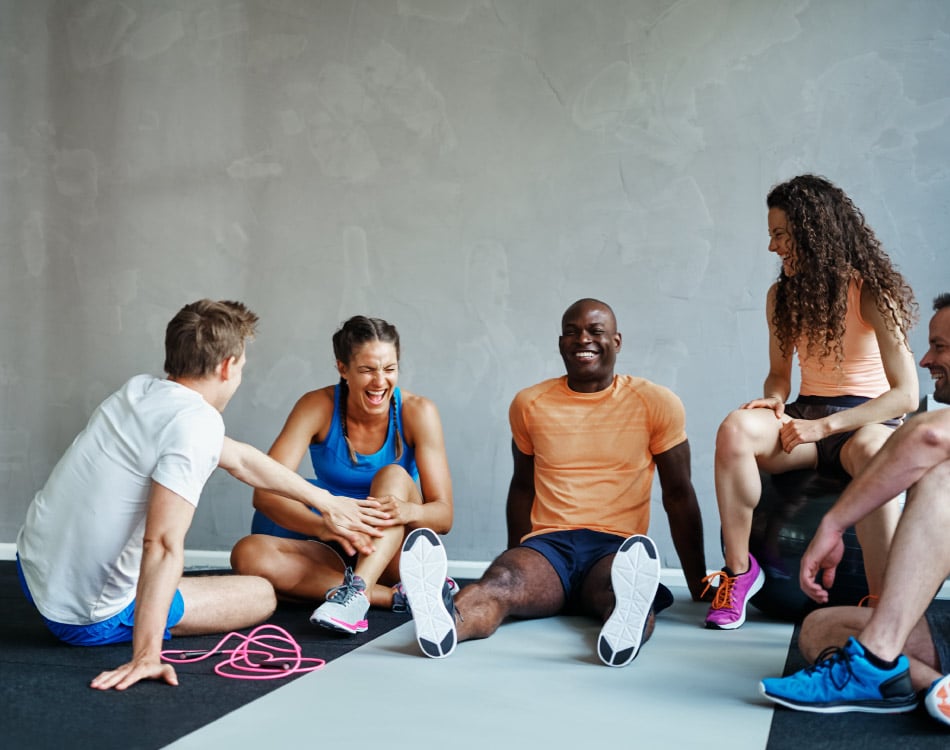When it comes to achieving your fitness goals, sometimes what you do is just as important as who you do it with, so choose your fitness community wisely.
While an effective training plan is vital to success, creating and actively participating in a supportive fitness community can ensure you hit every session as they group holds you accountable, support you through challenging times, and offers physical, emotional and psychological support.
READ MORE | A Complete Blueprint For Your Better Body Plan
Broader Knowledge and Experience
In any diverse group or community you will find a mix of people with diverse backgrounds and different level of experience.
This diversity fosters a rich environment where individuals can learn from one another, gain new perspectives, and discover alternative approaches to achieving their fitness goals.
Sharing information, knowledge and experience within the group environment can help accelerate education and learning, helping you make informed decisions to find the most effective approach without as much trial and error.
READ MORE | Master Peak Performance Psychology To Put The Endure Into Endurance
Psychological Support
Fitness is not just about physical strength; it’s also about mental resilience. A supportive community provides a safe space for members to share their struggles, triumphs, and frustrations. This emotional support can be crucial during challenging times, helping individuals stay on track and maintain a positive mindset.
In addition, the moral support and encouragement within the right group also tends to be disproportionately focused on those who struggle more – supporting the underdog is human nature, which is a social norm backed by research1.
And the acknowledgment and affirmation of your ability that comes with recognition from people in the community who you admire in terms of their ability or achievements is also highly motivational. This helps to build self-belief in your capabilities and raises expectations of your own abilities.
READ MORE | The Right Group Dynamics Can Nurture Performance
Motivation and Accountability
A supportive fitness community provides a constant source of motivation. Knowing that others share similar goals and challenges creates a sense of camaraderie and accountability.
When individuals commit to their fitness journey within a community, they are more likely to stick to their routines and push through difficult times.
In this regard, ot is beneficial to choose your training partners or group based on their attitude to training, as those who are committed and have a good work ethic will ensure you achieve the goals of each session and will be less likely to skip out on hard training.
You can also derive an important performance benefit by joining the right training group or community. Research suggests that a competitive training environment is more conducive to performance gains than one where social support is the overriding culture.
In one study2, researchers put almost 800 graduate and professional students at the University of Pennsylvania through an 11-week exercise programme that included running, spinning, yoga, Pilates and weightlifting.
Participants either worked out alone or in a team where the dynamics were designed to be either socially supportive or competitive.
In the competitive group, participants could track the progress of five random training partners via a social network, but they had no other interaction with them. In the supportive group, participants were able to chat to, go to classes with and encourage their exercise partners.
In the individual groups, people either worked out alone without access to a social network, which served as the control group, or with access to information about how they were doing compared to others.
The best performing participants, who won prizes, were determined by how many classes they or their team attended.
What the researchers found was that whether a person was alone or in a team didn’t affect how many workouts they did, but those in competitive environments worked out more across the board, attending 90% more classes than those in social groups or individuals with no means to measure their performance against others.
Interestingly, participants tended to exercise far less while in the socially supportive groups than they did while in competitive groups or alone. These effects happened regardless of sex or personality traits.
Ultimately, a supportive fitness community can also serve as a powerful catalyst for individual and collective well-being. Whether online or in-person, the benefits derived from a supportive fitness community extend far beyond the physical realm, enriching the overall health and happiness of its members.
References:
- Sage Publications. “Why Do People Support Underdogs And Find Them So Appealing?.” ScienceDaily. ScienceDaily, 20 December 2007. www.sciencedaily.com/releases/2007/12/071219155445.htm.
- Zhang J, Brackbill D, Yang S, Becker J, Herbert N, Centola D. Support or competition? How online social networks increase physical activity: A randomized controlled trial. Prev Med Rep. 2016 Aug 8;4:453-8. doi: 10.1016/j.pmedr.2016.08.008. PMID: 27617191; PMCID: PMC5008041.













